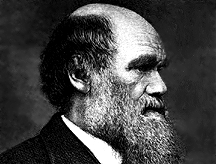

|
This course concerns biological principles as they apply primarily at tissue, organismic and population levels of organization. Consideration is first given to bioenergetics and systems that support energy uptake and utilization. Homeostatic control mechanisms for regulation of the internal environment are considered, as are the roles of hormones in homeostasis and reproduction. Principles of neurophysiology and the neuronal basis of behavior are studied. Evidence for evolution is reviewed, as are the tenets of Darwin's theory of evolution by natural selection. The nature and importance of variation among organisms and of stochastic processes in evolution are discussed, as are modern theories of speciation and macroevolution. Finally, the course addresses interactions between organisms and their environments as well as the interactions among organisms in natural communities. Each of the topics of the course is explored from a comparative viewpoint to recognize common principles as well as variat ions among organisms that indicate evolutionary adaptation to different environments and niches.
Unless preregistered students attend the first class meeting or communicate directly with the instructor prior to the first class, they will be dropped from the class list. NOTE: Students must still submit a completed Drop/Add form to the Registrar's Office.
COURSE FORMAT: Lecture
Level: UGRD Credit: 1 Gen Ed Area Dept: NSM BIOL Grading Mode: Student Option
Prerequisites: (BIOL205 AND BIOL206) OR (MB&B205 AND MB&B206)
Last Updated on MAR-19-2002
Copyright Wesleyan University, Middletown, Connecticut, 06459